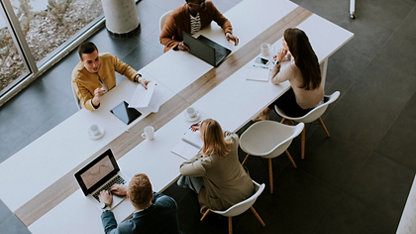The UK, like many other countries, celebrates LGBTQ+ Pride month every June. This helps to give a focus to the benefits of an inclusive work culture. A workplace where everyone can bring their whole self to work and has opportunities for growth and development and where we welcome colleagues of different cultures, backgrounds and experiences.
In welcoming colleagues from diverse backgrounds, we think more about allyship. But what does it mean to be an ally and why is it important at work?
For Pride month, Paula Dixon, Director of DVS for the Valuation Office Agency (VOA) and the VOA LGBTQ+ Champion, and Jo Towers, Lead Agricultural Valuer for the National Taxation Team with DVS share their story about the importance of allyship.
Paula:
What does being a good Ally mean to you?
I feel that being a good ally is about accepting others’ differences, so that individuals can bring their whole selves to work and not feel barriers to be able to use their skills, talent and experience. It is about being the best role model you can be – listening to others and treating everyone with respect.
What do you hope the Ally group will achieve within the VOA?
I hope that it will help towards the Civil Service’s vision of being the most inclusive employer in the country, where differences are accepted. I hope that more people will start to feel comfortable being themselves at work. I would encourage everyone to stand up and be counted and be an ally - it is fulfilling, you will learn a lot and you will help to give others confidence.

Paula Dixon
How can we be good allies?
1. Be informed
Ensure that you have an understanding of LGBTQ+ issues, keep informed and seek sources of information independently. Consider your own behaviour and unconscious bias; ask for feedback, reflect, adapt and continue to learn.
2. Be visible
Take part in making a more inclusive workplace by openly showing your support of LGBT+ people. Simple ways to show solidarity could be sharing LGBT+ positive media or book recommendations, wear rainbow lanyard or badge, share your pronouns in meetings and email signatures.
3. Be supportive
Empower your LGBTQ+ colleagues and play a part in ensuring they are heard.
Constructively challenge any inappropriate behaviour you see or hear.
Follow the appropriate bullying and harassment procedures. Advocate for implementation or updating of policies if they don’t already exist.
4. Be aware
Raise awareness of LGBTQ+ issues. Make time and space for LGBTQ+ colleagues; be there to listen, as not everyone's experience of being LGBTQ+ is the same nor does it solely define them. Don't make assumptions about a person's sexual orientation or gender.
5. Be vigilant
As it takes courage for LGBTQ+ people to be open and honest about who they are, it also takes courage to support your LGBTQ+ friends or loved ones.
Jo Towers: (In front of the Exeter office mural)
The fact that I felt able to come out at work and tell colleagues that I was about to transition was down to the support and allyship of close colleagues at work including those in the LGBTQ+ Allies group, of which Paula is the Senior Leader Champion. I felt that those allies ‘had my back’.
Coming out and wholly being myself at work has been a hugely positive change. The ever- present anxiety has gone along with the need to self-censor my conversations with colleagues. Before I came out the energy that it took to hide myself was exhausting. A simple question like ‘What did you do at the weekend?” was very difficult to answer when the reply would have been that I was singing with my LGBTQ+ choir at a concert or I was at a Pride event or with friends at an LGBTQ+ friendly pub.
One example where I truly felt allyship at work was at a leadership event recently. We all had name badges to wear with either a safety pin to use or an optional lanyard and our Director, Paula gave out the lanyards.
Every lanyard had ‘the VOA is an LGBT+ ally’ emblazoned on it. It was a fantastic feeling to look around the room and see my senior leaders and colleagues choosing to wear the LGBT+ Allies lanyard. A simple and very effective act of allyship.

Jo Towers
In summary, what do allies do?
Effective allies amplify the voices of those in minority groups
- Allies, particularly at senior level, lead from the front to inspire others to learn.
- They recognise intersectionality and the fact that people can belong to more than one minority group and face multiple stigmas for example the challenges faced by LGBTQ+ people of colour.
- They advocate for people facing challenges and bias.
Effective allies can create large-scale change
- Receiving allyship is incredibly positive for LGBTQ+ individuals (They have my back)
- Effective allies make it easier for LGBTQ+ people to be out and proud
- In turn, our visibility helps other LGBTQ+ people (I can be me if I see me)
- Allies can make change happen in the organisation and wider society
- Each new ally adds their actions to help positive growth in mindset and behaviours.











